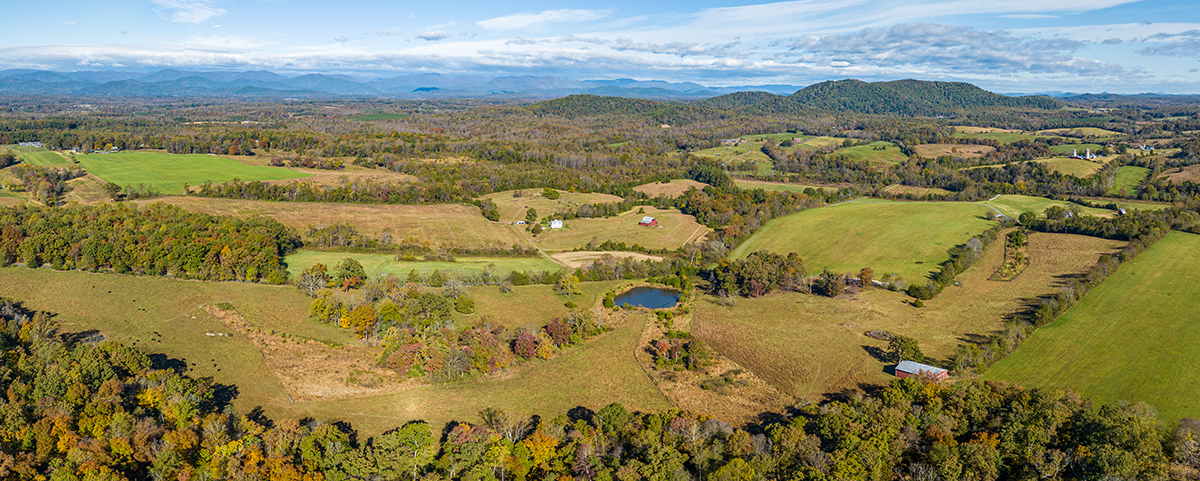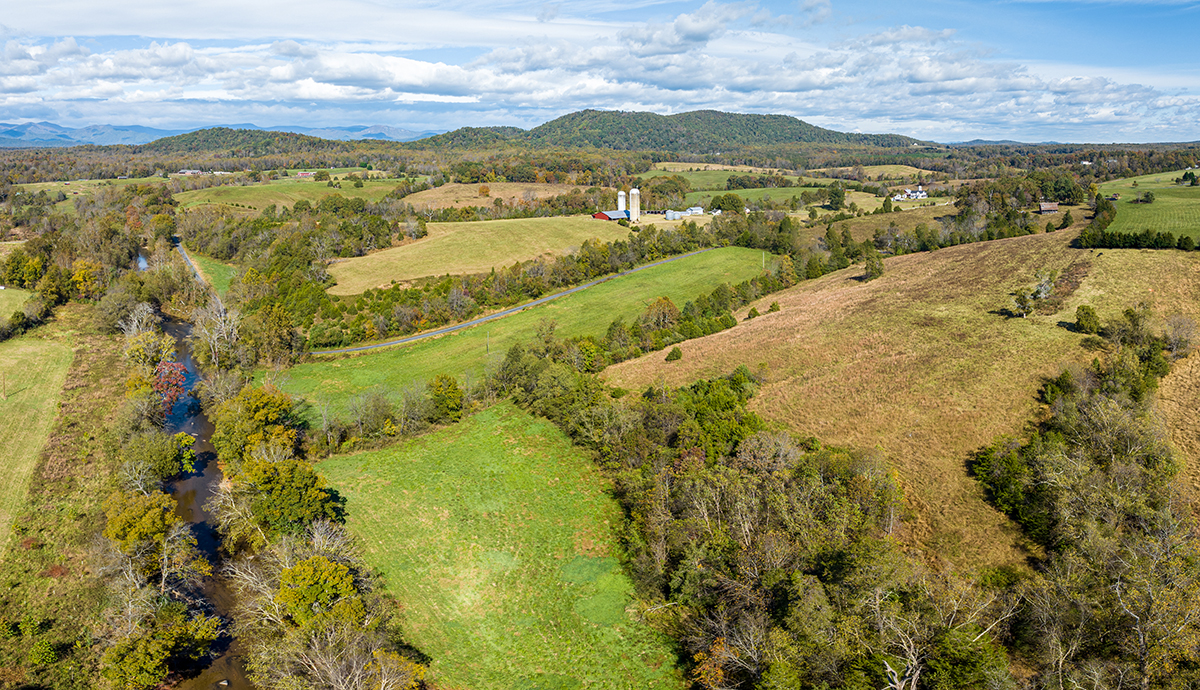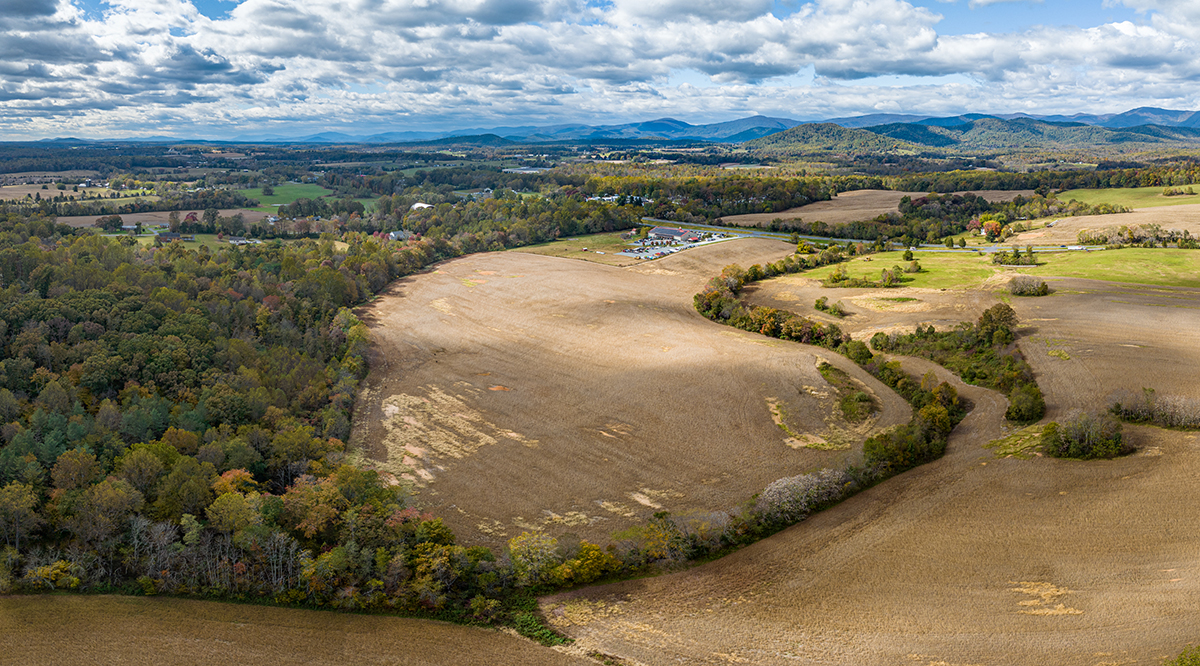The following text was sent out via email on December 12, 2022. Sign up for PEC email alerts →

Dear Supporter,
Hello and Happy Holidays! It has been a busy fall for the Madison County Planning Commission and Board of Supervisors, and I am writing today to share a few recent highlights with you.
Open space tax valuation
Pursuant to state law, Madison County (along with 75 of Virginia’s 95 counties) has a program of special tax assessments for land kept in agriculture, horticulture, forestry, and/or open space. Under the program, land is taxed based on the value of the land as restricted to one of those four uses (“use-value”) instead of on the land’s market value (were it to be developed). Counties can choose to offer such special assessments for any or all of the four uses. Including Madison, 46 counties have open space tax valuation.
At its Dec. 13 meeting, the Board of Supervisors will consider eliminating the open space use from its land-use tax valuation program. PEC is urging the County to retain the open space use, as an important conservation tool that complements the other three uses and furthers the County’s Comprehensive Plan, “to preserve, protect, and enhance the natural beauty, rural character, and air and water quality,” by removing some of the financial pressure on property owners to sell and develop land that may not have other viable economic options. While the agriculture, horticulture and forestry uses involve real estate realizing some commercial value, the open space use exists as a means of preserving the natural resources, beauty and character of the rural portions of the County.
Comprehensive Plan review begins
With a kickoff meeting on Nov. 10, the County began the process of reviewing its Comprehensive Plan. Under Virginia law, all counties must adopt a Comprehensive Plan and regularly update it on a five-year cycle. The Comprehensive Plan is a critically important document that represents the community’s vision for the future. It sets the framework for how land is used, identifies needed improvements to transportation networks and other public facilities, and provides a valuable guide for many other county programs and needs. Moreover, it guides all decisions and regulations around growth and development for the upcoming 5 – 20 years.
With the recent event venue and lodging proposals (see below) that were denied by the Board of Supervisors, at least partially as a result of community opposition to commercial uses in rural areas of the County, the Comprehensive Plan review process is timely. It will provide a chance for the community to weigh in and explore potential policy changes to better direct future economic growth and residential development to Madison County’s existing developed areas and help ensure preservation of the County’s rural character and scenic beauty. PEC will be following the Comprehensive Plan Committee’s work closely and will let you know when there’s an opportunity to share your thoughts!
Robinson River glamping proposal
In March, Maryland developer Ahmed Helmi proposed a 70-unit glamping resort on 38 acres of farmland along the Robinson River on Fords Shop Road in the rural Oak Park area of the County. After receiving initial feedback from County planning staff that the proposal was too dense, Mr. Helmi obtained an option to purchase an adjacent 20 acres and resubmitted basically the same plan in September – only now on 58 acres. PEC expressed concern about the size of the project and argued that even if it were spread out over 58 acres, the anticipated 224 overnight guests, as well as the full-service restaurant and bar, presented serious traffic and water-usage issues.
After multiple work sessions and attempts to mitigate community concerns, the Planning Commission and Board of Supervisors ultimately agreed with PEC and with a number of neighbors to the property. At a joint meeting on Nov. 2, both bodies voted to deny the application because the development would be inconsistent with the County’s zoning ordinance, “tend[ing] to change the character and established pattern of development of the area.”

Criglersville School redevelopment proposal
Following close on the heels of the glamping decision, the Board of Supervisors was presented with yet another proposal for a commercial use in a rural area that highlighted the challenge of balancing economic development priorities with the concerns of local residents.
Constructed in 1946-1948, Criglersville Elementary School was a hub of activity in the village for over 50 years. The school closed in the early 2000s, and came close to being demolished by the County in 2020 after a decades-long search for a buyer failed. The adoption of a zoning amendment that allowed “mixed use building(s)” (and a $350,000 demolition price tag) gave the County a renewed opportunity to attract a buyer, and in May, the County entered into a contract with Felix Schapiro, a Richmond developer who offered to purchase, renovate and repurpose the school as a boutique hotel and wedding venue.
Mr. Schapiro proposed renovating the school building and constructing seven guest cabins in the rear. PEC was pleased to see an attempt to renovate and reuse the historic school building, but had a number of questions around water availability/usage, noise, and guest capacity with regard to potential negative impacts on the village of Criglersville. Ultimately, community concerns over noise, traffic, and water/sewer, among other issues, convinced the Board of Supervisors to deny Mr. Schapiro’s request to rezone the property and decline his offer to purchase.
At the same meeting, after several members of the Board lamented the difficulty of balancing the need for new revenue streams with the impacts of land use changes, the Board announced that it will take up other proposals for the school property in early 2023. One already submitted is from a community group interested in purchasing the building and turning it into a community center. Another would be a resubmission by Mr. Schapiro, if he chooses to do so.
Utility-scale solar proposal next to Yoder’s Country Market
A 16.75 MW utility-scale solar facility has twice been proposed and now twice delayed for 90+ acres behind and adjacent to Yoder’s Country Market on Rte. 29. The first application was submitted early last year and went to a public hearing before being withdrawn by the applicant due to difficulty obtaining a feasibility study from Rappahannock Electric Cooperative (REC). With the completion of a feasibility study in August, the proposal was revived again, and expected to be brought before the Planning Commission and Board of Supervisors for a public hearing in November. However, according to news reports, the current applicant has halted the application once more. As of yet, no further information is available on a possible timeline, although it has been made clear the applicant intends to continue pursuing this project. According to the REC feasibility study, the facility would connect to the grid at REC’s Pratts substation via a new 34.5-kV distribution line. If and when an application is resubmitted, PEC will review the proposal carefully before weighing in.

Thank you for your interest in PEC’s land use work in Madison County. If you would like to learn more, or if you have any questions or concerns, I would love to hear from you!
Sincerely,
Don McCown
Madison County Field Representative
[email protected]
(434) 977-2033 ext. 7047
